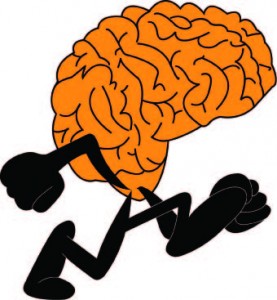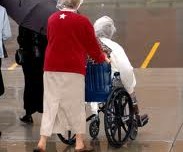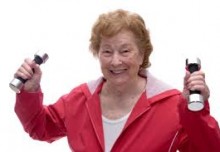 As geriatric care consultants, we always tell our clients that caregivers and the loved ones for whom they care can both work on and benefit from working toward healthier brains. We are what we exercise. Okay, we have all heard that we are what we eat, but there is a growing body of medical literature that points to exercise for seniors as being a critical element in maintaining a healthy and vibrant brain as well.
As geriatric care consultants, we always tell our clients that caregivers and the loved ones for whom they care can both work on and benefit from working toward healthier brains. We are what we exercise. Okay, we have all heard that we are what we eat, but there is a growing body of medical literature that points to exercise for seniors as being a critical element in maintaining a healthy and vibrant brain as well.
We all see that the aging process takes an inevitable toll on most parts of the body, but mental decline is not inevitable. Now, the brain is not a muscle, but as with the biceps or triceps and the rest of the muscles in the body, the brain actually does shrink a bit with the cumulative effect of birthdays. But your brain does not have to lose its edge if you keep flooding it with oxygen rich blood such as comes from aerobic exercise. Increased blood flow is not a car wash for the brain; it is a nutritional floodgate that brings oxygen and all the other enriching elements of your blood to feed the brain. And exercise increases the flow.
But can exercise really have an impact on staving off decline or enhancing neural health? A researcher named Dr. John Medina of the University of Washington School of Medicine cites data which show that regular exercise reduces the risk of Alzheimer’s by fifty percent and the risk of other dementias by as much as sixty percent. It is not just the blood flow, but when the blood flow to the brain increases sufficiently, it triggers the release of brain food called “brain-derived neurotropic factor.” This particular chemical stimulates the growth of new neurons in the part of the brain involved in memory, decision-making, planning and learning. It also helps repair damaged cells in the brain.
The good news is that you do not have to be an Olympian to get the benefit of exercise to your brain. Anything you can do that increases your heart rate for some relatively modest amount of time will make for your healthier brain. If you can devote just thirty minutes a day five days a week to walking aggressively or whatever aerobic effort you prefer you will get the brain benefit. Remember all the usual cautions of warming up and cooling down with your exercise. When it comes to exercise for seniors, there are alternatives to brisk walks like swimming, machine assists like elliptical machines or bikes for those with knee or joint issues and more. Make it a priority for your daily schedule. And the real bonus is that while you are getting the brain benefit, you also may be able to drop some weight which will be great for your heart and your ego.
Charlotte Bishop is a Geriatric Care Manager and founder of Creative Care Management, certified professionals who are advocates, resources, geriatric care consultants and friends to older adults and their families in metropolitan Chicago. Please email your questions to info@creativecaremanagement.com.






